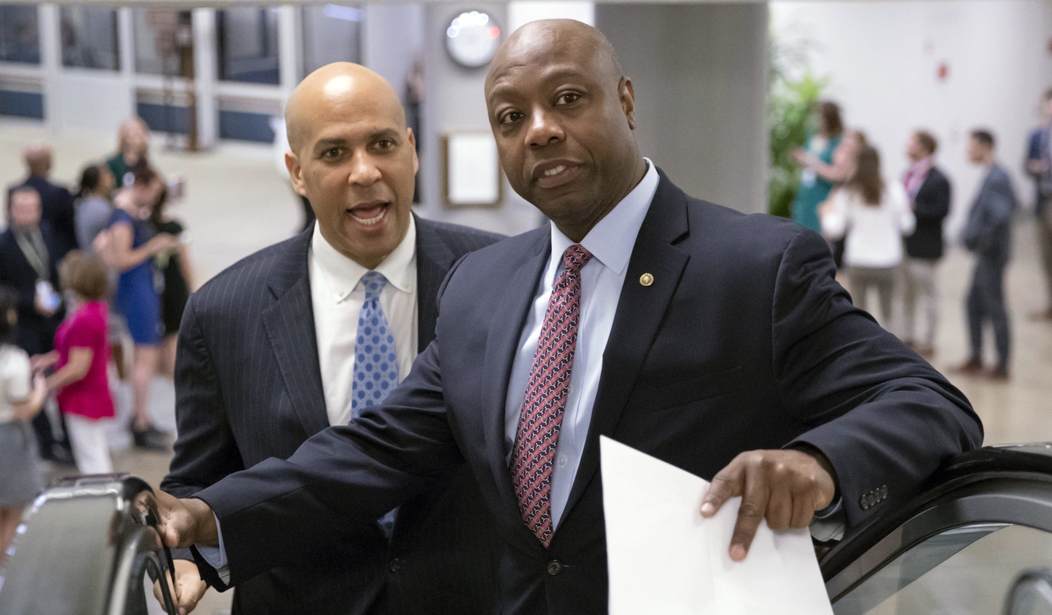WASHINGTON – Al Sharpton argued that African-American leaders should focus more delivering a message of “economic empowerment” since politics is “about protecting business interest.”
“We deal a lot in the civil work and not enough emphasis on the economics. And unless we bring home the economic empowerment, then our social and political work is compromised,” he said at the recent Congressional Black Caucus Foundation Legislative Conference during a discussion on “inclusive economic development.”
As an example to support his point about “the marriage of politics with economics,” Sharpton mentioned pension funds.
“When we look at the fact that many of our cities, our major corporations that we buy from, even our unions, do not use black money managers – they use the consultants who bring in their friends, their friends give the money to them but it comes out of our pension funds. So in many cases, Grandma’s pension is being invested in developers that use that to remove Grandma,” he said.
“We are really financing our own gentrification and we’ve got to really be the connection between politics and economics. Otherwise, we are just recycling civil servants and not building empowerment – and that is why I think no one has tried to express this and represent this better than Sen. Cory Booker,” he added.
Sharpton noted that Martin Luther King Jr. fought for integrated hotels but found out that “we couldn’t afford to hand-build all of the hotel rooms.”
“Now we should be at the stage, 50 years later, where we are owning the hotels. Well, that’s developer money and that comes from investments, and with these enterprise zones and with what Cory is trying to do, which is where I think he symbolizes what politics is about today, is bringing that marriage together,” he said.
“And some will say, ‘Well, that’s too business-oriented.’ That’s what politics is about – protecting business interest. And I think that if we don’t get into the mentality of that we will always be beggars calling ourselves senators or council people. We will really be at the mercy of the people who have the money,” he added.
Booker said the “wealth gap” between white Americans and African-Americans is larger now than in 1972.
“After years of making gains, we are now losing ground and not gaining, and the trends in our economy continue to work against working Americans,” he said.
Booker said he would like to see more legislation at the “federal level” to “design rules” that allow more people to “succeed” economically at the local level.
“We have to get back to a community where every American has an opportunity to thrive because genius, the most valuable natural resource in a global knowledge-based economy, is not oil or gas or coal – it’s the genius of our people. It’s the genius that human power is equally distributed – as many geniuses being born as there are in wealthier suburbs,” the senator said.
Booker cited the legislation he worked on with Sen. Tim Scott (R-S.C.) that was integrated into the tax reform package. The legislation allows governors to designate certain areas as “opportunity zones,” which would provide investors in those areas with a reduction in capital gains tax over time.
“Please don’t vilify the brother just because he’s a Republican. You hear me now? Because a lot of people make a lot of assumptions just because of some kind of party label that we have on ourselves and not sitting down at the table looking for common ground that we need to get things done,” Booker said. “Tim Scott grew up to a single mother. He hasn’t forgotten where he’s come from.”
Booker predicted that technology companies would take advantage of the tax benefit for investing in areas deemed “opportunity zones.”
“I’m not worried about the tech money not taking advantage of this. What I’m worried about is making sure that the people who are at the helm in these communities, the nonprofit organizations, the governmental organizations, community groups and so forth, that they are actually making sure that these resources that we have been begging to come to our communities for years,” Booker said, adding that he is focused on preventing gentrification as well.









Join the conversation as a VIP Member